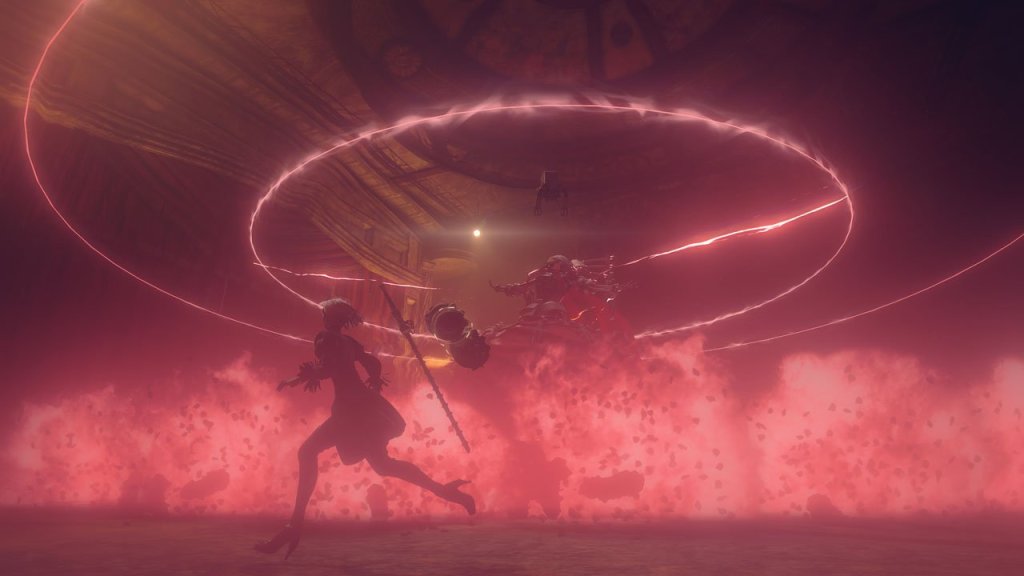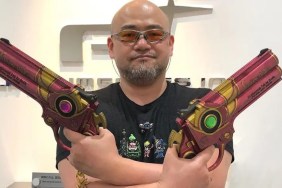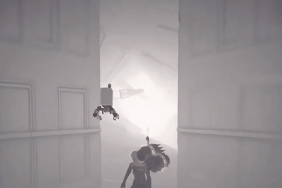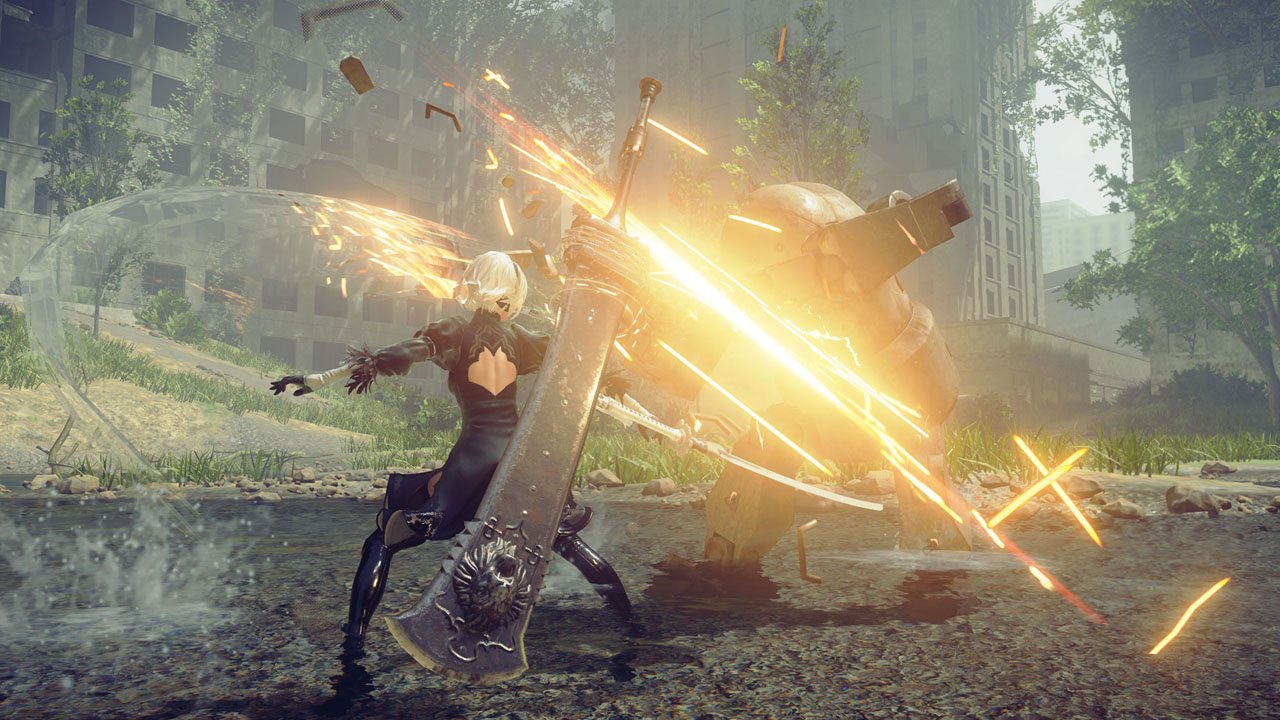
I’ve gushed about NieR: Automata on this website plenty both in audio and written form, and for good reason. PlatinumGames and director Yoko Taro managed to create a beautiful game that pushes the boundaries of the medium as a whole. It’s a game that I’ve thought about on a pretty constant basis ever since it came out last year, and now just a little over a year after release, I got the chance to speak with both director Yoko Taro and composer Keiichi Okabe about their masterpiece.
Topics discussed include Instagram (obviously), why developers shouldn’t strive for perfection, and one of the hottest issues in gaming at the moment: how games handle violence. Check out the full transcription of our hour-long discussion below!
Tyler Treese: Before I ask you about game design, I wanted to touch on your Instagram account. You have these great photos of dogs waiting without their owners. Can you tell me why you created such an account, and if you have any pets or if you have a favorite breed of dog?
Yoko Taro: I guess I’ll go backwards in my answers. My favorite type of breed is Akita. It’s a native Japanese dog. I also don’t have any pets.
The reason why I have that instagram account is because I’ve been collecting these pictures of dogs waiting for their owners outside of the store for about 10 years. So, I do have a lot of pictures that I’ve accumulated over the years. I thought that it was finally time that I would start posting them online. I just thought that the dogs are just really cute because they’re just looking into the store just waiting for the owner. I really liked that image, so I started taking pictures.
Do you not see that many dogs like that outside of stores in America?
Not that often.
Taro: By the way, Okabe-san’s friend had his dog outside a store waiting for him and someone stole that dog.
Oh no!
Keiichi Okabe: Apparently it was a puppy about two months old and was just right about ready to go outside and take him out to walk. They assume that it probably was taken from the owner because it was because it was so small they could probably still resell it to a store.
I’m so sorry.
Okabe: Oh, but by the way, I did have a corgi myself.
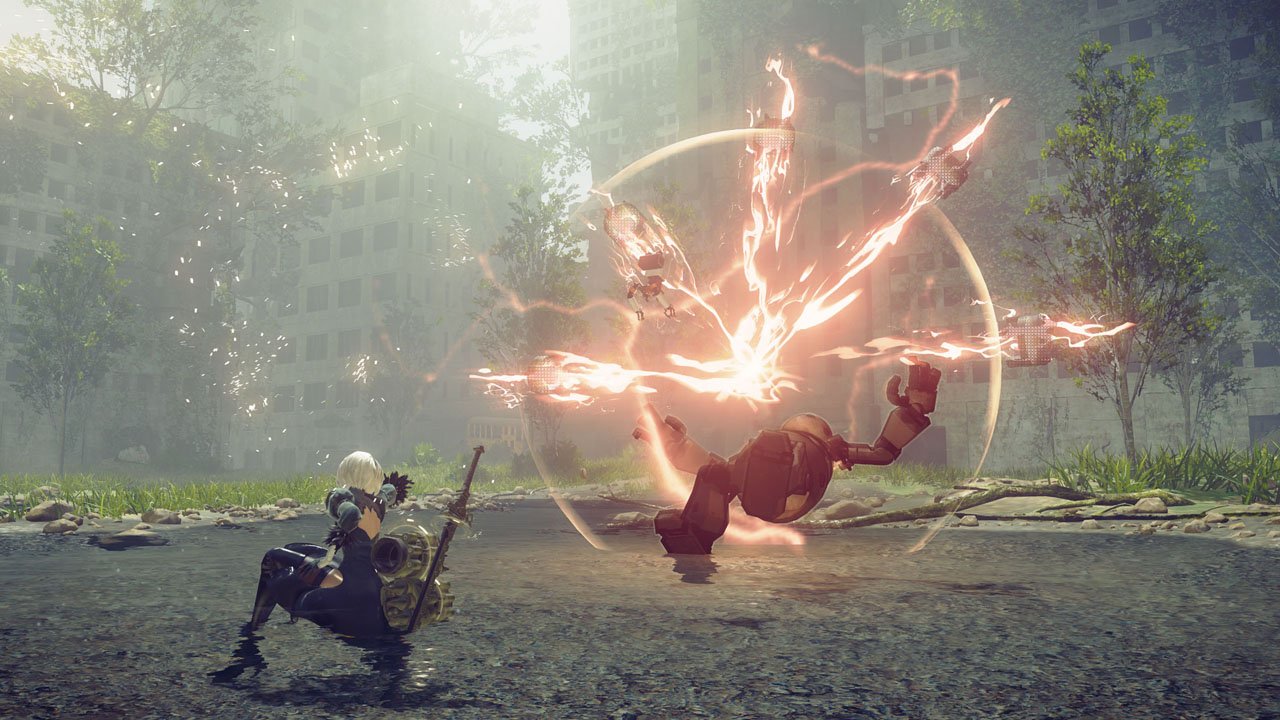
One of the aspects of gaming that’s so unique is that players have control. You, as a creator, don’t have full control over your art. With player agency, they effect the game play and they interpret the story. Can you talk about the challenges that creates as a developer?
Taro: So in NieR: Automata, one example is that you could zoom out the camera to quite a long distance, but when you do that, there are instances where the hit boxes associated to buildings kind of glitch. However, we thought that it would be more important to have that sort of freedom for the players instead of trying to make it so pristine and perfect. So throughout the entire development we thought to do what players might enjoy more than what we thought would be a perfect game.
As a follow-up to that, a lot of the conversation around games is around technical polish. About games running up 4K or at 60 frames per second. Do you feel like that’s a reductive way to look at gaming as an art form?
Taro: As for NieR: Automata, PlatinumGames, the developer of the game, they really tried hard to achieve 60 fps throughout the entire game. However, if we tried to put more polish into other parts of the game it incurs costs associated with it, like the rendering or just manpower in general. So, I think it’s more of trying to determine what to put your money into. Because I feel like if you try to achieve everything, it just becomes an average game overall. For NieR: Automata we kept in mind to try to do what other games won’t do, and try to put our efforts into that instead of trying to do what other people have already done.
Your games often have explored the subject of death and the human justification behind murder. That people justify their actions by thinking they’re morally right. Many games don’t explore this. Death is just an expected part of most games. What are your overall thoughts on how the medium handles violence and death as a whole?
Taro: I feel that humans are kind of broken in a way. Just taking the Olympic Games for example, while we try to talk about peace in the world, we are always happy to win and you always want to be number one. We find enjoyment to be better than other people. Games in general I think it really caters to that human instinct where we enjoy fighting against each other and enjoy winning against each other, being better than others.
To go into the video game genre a little bit more, I feel that it caters to that kind of human instinct a little more. When in the real life where it’s not seen as something good. In video games you could participate in wars, use guns to kill other people and that turns into enjoyment of that player and whether or not the developers did that instinctually or they’re just creating it to have fun or if they wanted people to feel that way is a different question. But I feel that catering to that instinct is a part of that warped sense of the human mind.
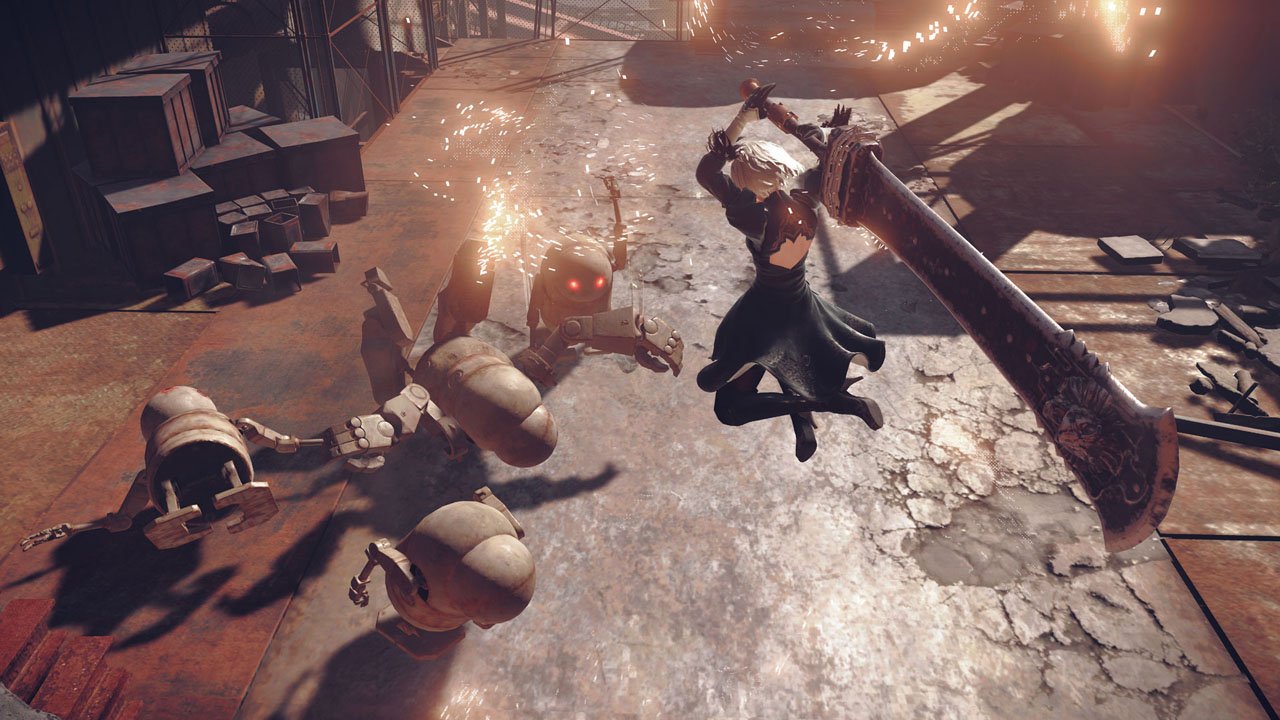
From its multiple endings to the ending credits scene, NieR: Automata is constantly doing things that are unique to the gaming medium. Do you think that other developers need to take more risks and think outside the box to further the medium?
Taro: As for the multiple endings, it wasn’t actually taking a risk per se. It was more of trying to figure out how to use the same resources that we have to make players play over and over again. So it was more of an outcome of trying to figure out within the budget that we had.
So as for other developers if they should take a risk or not. Personally, I feel like they shouldn’t just because I can make more money that way cause I could continue to go that route. But if they did start taking risks, I’ll do something that other people aren’t doing anyway. So it doesn’t really matter.
Recently I’ve been feeling that in the west JRPGs are kind of positioned between AAA titles and indie titles. We were able to find this niche inside that void between AAA titles and indie titles. But lately, Hellblade, for instance, I feel like western titles are kind of creeping into that niche that we found. So I feel we should probably look into other parts of the gaming spectrum to not have to compete with those titles.
You talk a lot about humanity being broken, and you talk a lot about money. Is money one of your driving forces as a creator?
Taro: At least for money, I feel that as long as I can eat I’m OK with the amount I’m given, but just developing games in general is really costly. So money is important in that sense, but it’s not really about the money. We need money to be able to get more people to work on the game. So ultimately I think it’s more important to have good people on the project than money.
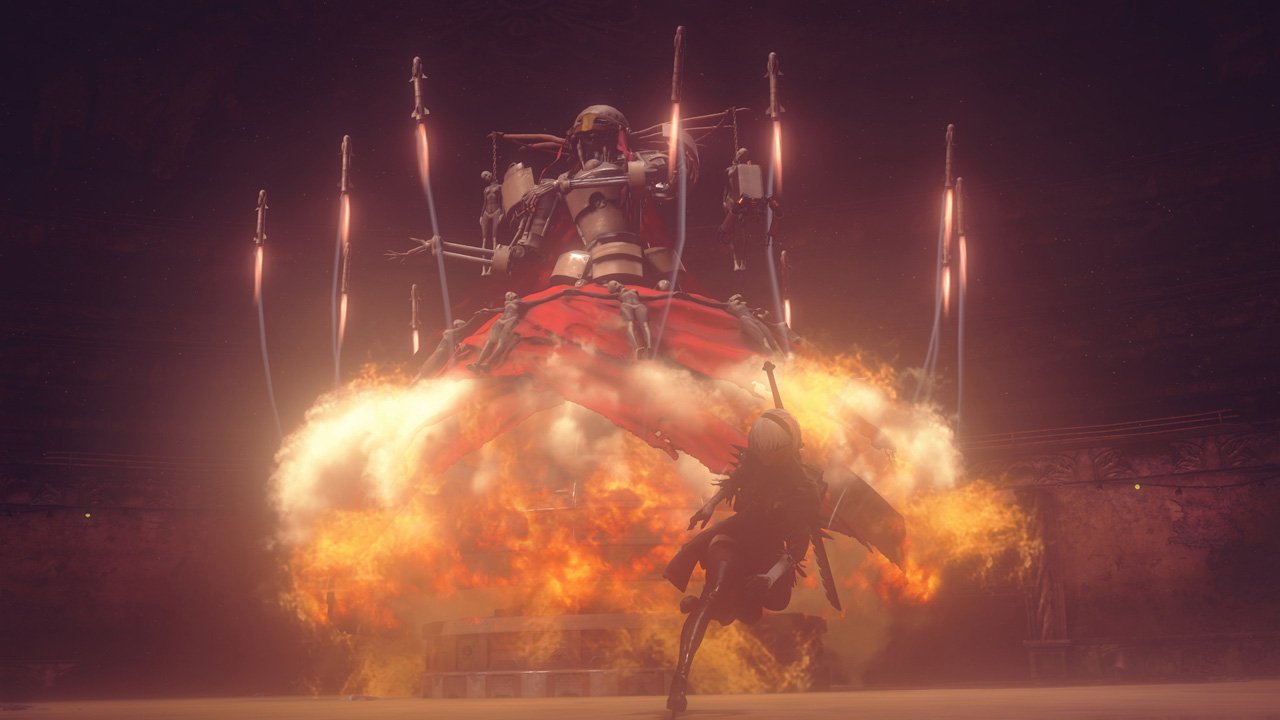
Your games have managed to strike such a chord with fans. There are many games that I finished one day and I kind of forget about them the next but I find myself coming back to the themes of both NieR and Drakengard often. Do you feel like creating a lasting impact is one of a creator’s greatest feats?
Taro: If there is a formula to make sure that it leaves an impression on the player I’ll probably be doing it every time, but to be honest I’m not sure what clicks with fans so that it’s impressionable. I think it’s probably because there’s something missing from my titles. Just to give an example. My previous title, my previous NieR title was called an “ugly puppy” from one of the media outlets. I forgot which one, but I feel that kind of not polished feeling gives that sense of you want to cherish that game since it’s not perfect. I think that’s probably why. As for NieR: Automata, I think because of that we have been able to come into interviews like this even after a year since release because we’ve received so much support from the media and fans. So for this one full year I feel we feel really supported by the media and fans, and I feel our game has matured so much because of all the fan support.
You’ve been open about some of the pressures of game development and some self doubt before. Like you said, Automata brought a new amount of critical and commercial success for you. Are you really able to take that in and enjoy it or do you view it as a adding more pressure to future projects?
Taro: So, as for the success of NieR: Automata, I think that wholly lies on PlatinumGames. So rather than feeling successful, I feel lucky to have been able to work with PlatinumGames. So I do hope that I’ll be able to be that lucky again. That’s how I feel about this.
If media write at the very end of your article that PlatinumGames should work with Yoko Taro again, I think that that would pressurize them into working with me again, so please write that at the end of your article.
I will do that.
Taro: Thank you.
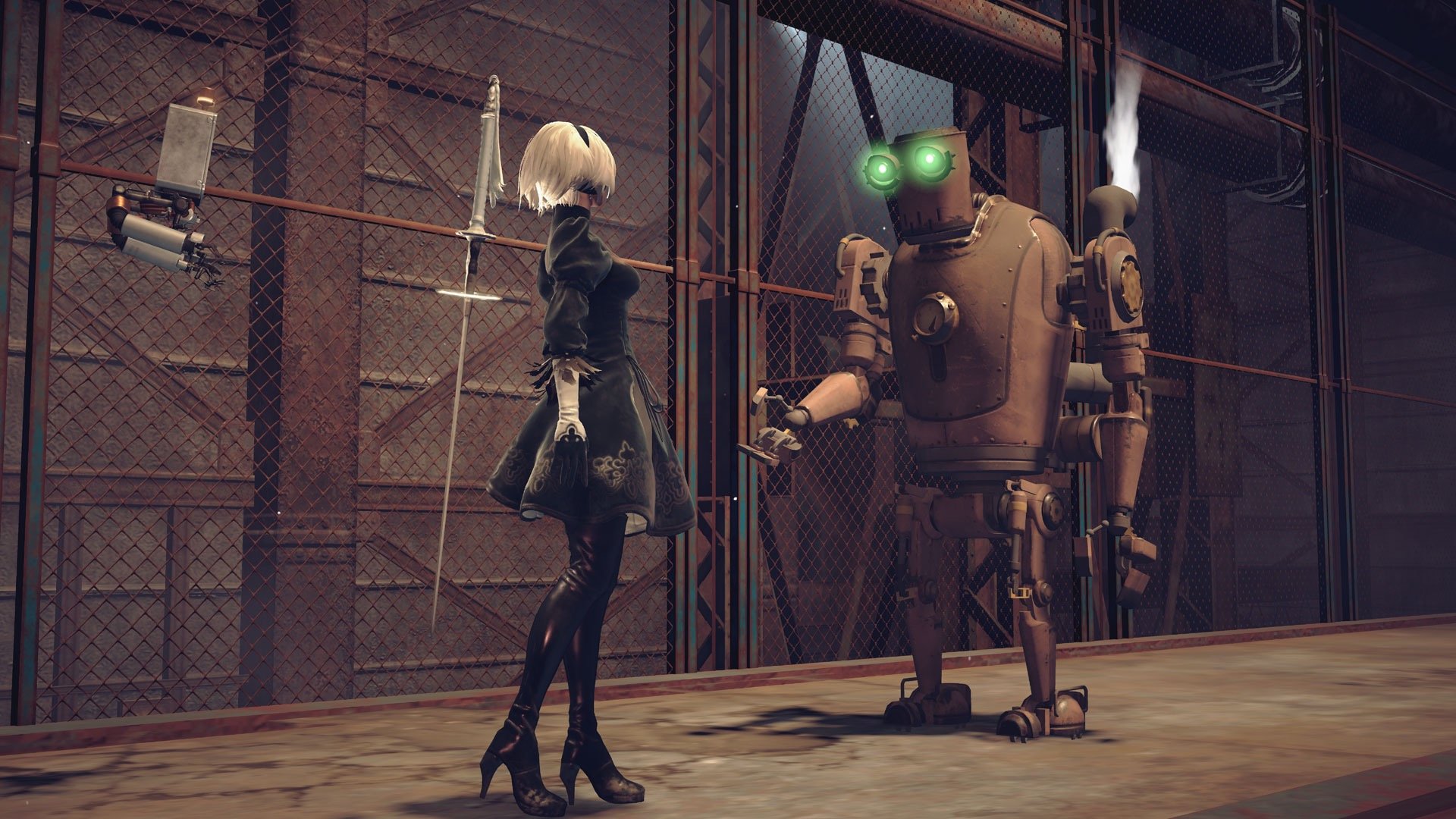
For years you’ve talked about wanting to create a vertical shooter since Gradius made you want to get into design. NieR: Automata definitely featured those types of shooting scenes. Is there more you want to do within that genre? And are there any other types of games that you’d really like to create in the future?
Taro: As for vertical shooters, I do love them, but you kind of need a meister to be able to create a really good vertical shooter. It seems like an easy game to make, but it’s actually really not. So I don’t know if I’ll be able to pursue that as such, but if there is an opportunity I would love to. Aside from that, I feel that games in general have so much opportunity, and a lot of different genres. So I want to create a game that would cater to all the different types of gamers. For example, if you’re an avid FPS player you might not really like action games, but I do want to create a game that was the appeal to both.
You’ve previously talked about how you get bored as a designer and that leads to a lot of variety in your games. Do you get bored playing other games, and do you wish that they had the amount of different gameplay systems as seen in your titles?
Taro: As a yes or no answer, yes, I do get bored with some of the games that are out in the market. But that doesn’t mean that I want different genres in one game. At the same time I do want people to create games that won’t get me bored. I think I get bored because when a certain format becomes unpopular, everyone just starts to use that format and it loses that element of surprise. So I do hope that a lot of game developers will actually get themselves away from that kind of cookie cutter games and start to create things that would really appeal throughout the entire game instead of just the first few hours.
And of course, throughout some of the great series, it’s fun every single game. So it doesn’t mean that it has to have a variety of different genres, it just has to be able to have fun. I think it’s more a feeling of service, they’re creating entertainment, that the developers need to have.
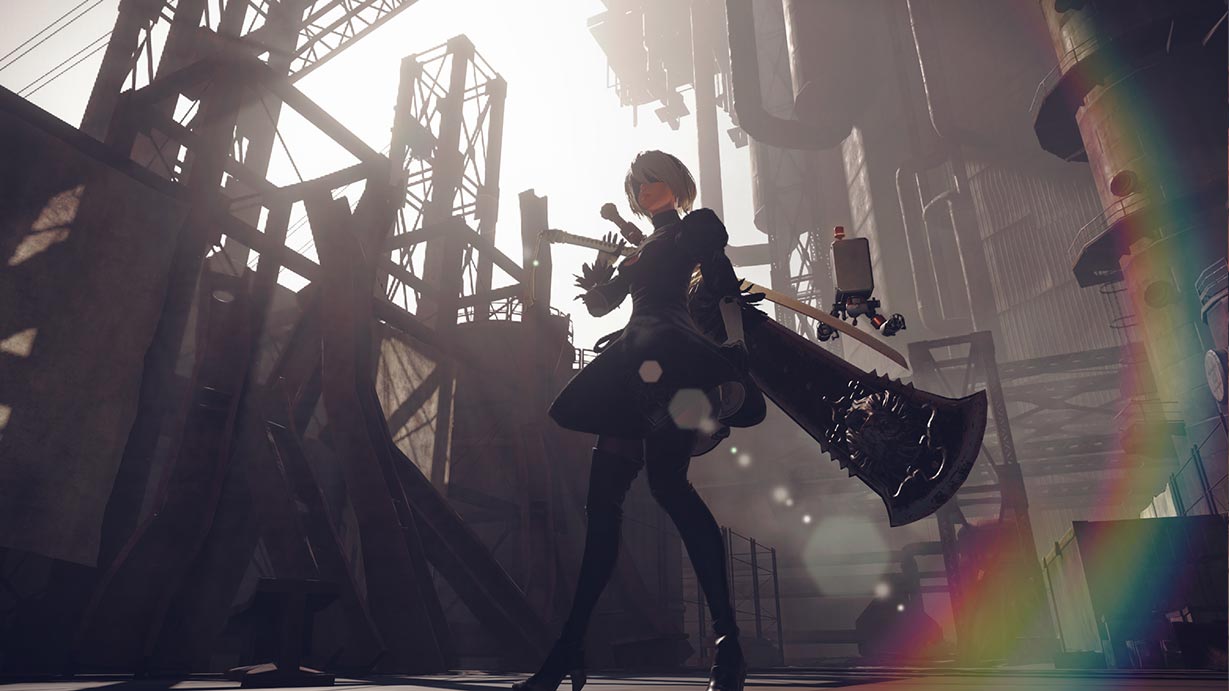
You’re very active on social media and Twitter and interacting with fans. You seem to have a very positive experience overall on a platform that is often filled with a lot of negativity. Can you give me your thoughts on social media and fan interaction?
Taro: So I think that that social networks do have a negative and positive side. I do receive some negative comments as well, but I feel that it’s more important to respond to people who have a positive reaction to me instead of the negative. By me reacting to the positives, which is the bigger audience, it shows to the negative audience that this is how positive it can be. So, I think that it’s important for me to respond to more of the positive rather than the negative stuff.
I feel like we’re starting to see a trend in games where games are exploring what it really means to play a game. For example, in NieR: Automata players are given a choice to sacrifice a dozens of hours they’ve spent playing the games to help out other players and it creates a very powerful moment. Do you feel like creators are starting to learn what’s really possible storytelling wise within gaming and focus on what makes it so unique and separates it from films and books?
Taro: I feel that with games as a platform, there are so many things that we can still do with it. Especially because it’s not really constrained to a certain format. For example, films are called films only because there are about two hours per film and you display them in theaters. That’s a given to be a film. For a book, you have to have a lot of words, and a lot of pages. Maybe publish it on paper or online lately, like on Kindle, but there is a certain format that they have to follow.
Video games, I feel that it’s not constrained to a certain things. Lately, of course smartphones are coming out, but I don’t feel that it’s not a platform in essence. It’s more like a box or something to hold it. it’s not constrained to a mold. So, I feel that in the future there’s more possibilities, more different platforms, and maybe they’ll all be connected by a certain kind of network. So, at the end we might not even think about platforms or anything. It might just be there in the world.
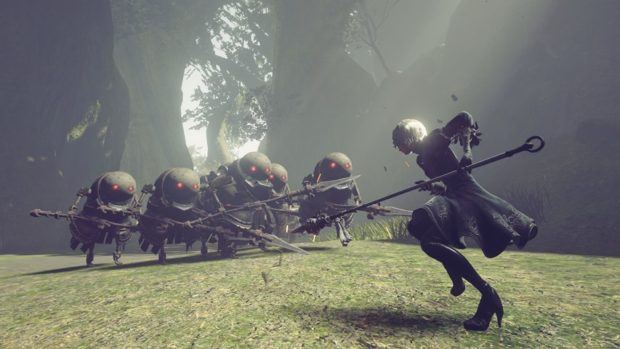
Can you both talk about the collaborative process, and what goes into a feedback when creating music?
Taro: I was thinking if you end your interview without Okabe-san saying a word it would be really funny, but now that you’ve asked a question to Okabe-san I’m kind of sad about it.
Okabe: So working with Yoko-san he gives me a list of what’s necessary in the game. And he would also give me examples of existing music and tell me that that’s the image I have in this particular part of the game.
Taro: But that’s actually something that’s really rude to do to composers, so I won’t do it to anyone else but Okabe-san.
Okabe: I, of course, play games and I’ve been in the gaming industry creating music for it, but I’m more of a composer than a game creator. Yoko-san has a vivid image of what he wants in a game, but he’s not a music composer. So we don’t really have a common language that we could use. So it’s really hard to explain what we want in terms of music. For example, if Yoko-san says he wants something fast, fast is really different per person. So it actually helps that he gives me some clips of other people’s music to just tell me what kind of music he wants. That gives me a bit better understanding on what he wants, and so I’m actually really happy that he takes that approach.
The music has been very well received. It won our soundtrack of the year and it’s been remixed and rearranged in many ways. As a creator, how does it feel to see your work get interpolated in such ways.
Okabe: As for awards, I’m just really happy that we were able to receive so many awards. When fans listen to the music and they feel that they want to arrange it, I’m actually very happy to see those online as well. And of course, some are really pristine and high-quality, while I could tell that others are made by those that are doing it for their hobby. But regardless of the quality, I’m just really happy that they wanted to arrange my music.
That’s mainly because when I was not a professional composer, I would also arrange other people’s music as well because I was compelled to do that by listening to their music. I wanted to add something of myself into that music that someone else created. And that’s usually when that music held a special meaning for me. So I’m assuming that’s what our fans are doing as well, that they were inspired or thought that my music was really special, so they wanted to arrange it. So in that sense I’m just really happy that there are so many people that wanted to do it.
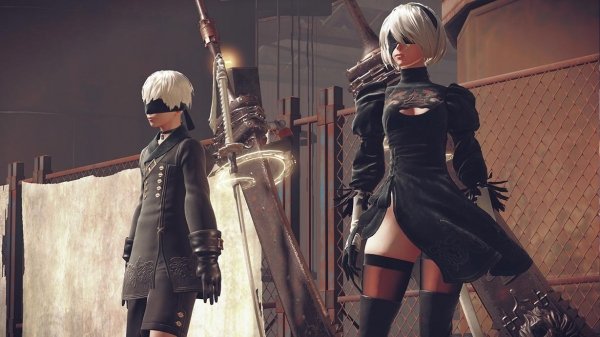
The character 9S has a incredible story arc within the game and we see him get into some self destructive behavior and because of that he feels like the most human character in the game since you see his flaws. Can you talk about his overall arc as a character and your goals with him as a character?
Taro: When I first started creating the story from NieR: Automata, I actually started by thinking that I want 9S and A2 to fight at the very end. So that was the first thing I created in that storyline. From there on, I built a story to tell why that happened, why they’re fighting at the end. But at the same time I wanted people to empathize with all the characters. So, when 9S is the broken one and A2 is the one that’s talking about justice, I felt that 9S would just look really bad, like people won’t be able to empathize with them, they’ll just think that he’s a bad character.
So throughout the entire story creation process, I was thinking about how to make that balance. How do you get that balance between 9S and A2 to make sure that people can empathize with those characters? When I finished creating it, I felt that those two characters just ended up being very mysterious and just uncontrollable. You just don’t know what’s happening, and it was very chaotic. So even then, I wasn’t really sure how people would have taken those two characters because it just went out of hand on that front. I wasn’t able to get that balance.
But when you mentioned that 9S is the most human-like, I was really happy to hear that. Because that’s a little bit different than what I had in mind when I was creating the characters and creating the game. It means that fans have taken the storyline in NieR: Automata, thought about it for themselves and they came up with their own interpretation of the game and that’s something I wanted fans to do instead of me pushing my own thoughts into the players.

One thing that’s very unique about Automata is how well it works as a standalone title despite being a sequel. Can you talk about the challenges of catering to an existing base while also making it so accessible to newcomers?
I always keep in mind that I should be able to cater to newcomers to the series. I feel that shouldn’t need to have any previous knowledge to be able to play any sequel. As an extreme example, let’s say a grandma for instance goes to a game shop, buys a game, and gives it to their grandchild. I want that grandchild to be able to play it and have fun with that. So let’s say that if that’s NieR: Automata, I want that child to be able to enjoy the game by itself without having to have previous knowledge on the past titles. So that’s what I always keep in mind, and what I will always keep in mind in the future as well as I make games.
In that sense I feel that Easter eggs are kind of like a topping on an ice cream. Like where it’s just a little sprinkle on top and that’s it. I feel that as long as I’m able to secure that basis, that they did enjoy the game without previous knowledge, it’d be OK to have those Easter eggs in the game.
One final thing, I do a podcast called Games We Love, which is where I talk to players about games that really register with them emotionally, and the first episode was on NieR: Automata. Each episode ends by asking my guests what they would tell the creator if they had the chance. So, I’d like to pass along the thoughts of my guest and get your reaction to it:
“Thank you for this amazing experience. It is my favorite game ever, and even saying that feels like an understatement since I don’t think there’s a humanly possible way to express my love for the game. I know you don’t do direct sequels, so I will let that slide, but I really hope to see 2B, 9S, and A2 again someday as I’ve grown so attached to these characters. You’ve crafted such brilliant characters and world that I’m so eager to delve deeper into. I’m just so happy to have experienced this game. I will never forget playing this, I will be on my last day thinking about this game and how magical it is.”
Taro: I’m very honored and happy to hear that. As for 2B, 9S, and A2, they may be depicted in the future some way, one or another. But I feel that it’s more important about that our fans have enjoyed those characters. I actually feel that they’re not that great of a character, but I feel that because they are not a complete character, the players themselves have filled in the gaps with their imagination. And so in that sense, I feel that they are characters that players have created themselves. So I’m very happy, and I want to thank everyone for that as well.
Music is always praised, so I’m happy that that person did not talk about the music at all.
Thank you both so much for your time.
A huge thank you to Square Enix PR for setting up this hour-long interview, and to both Yoko Taro and Keiichi Okabe for taking the time to talk to me. Also, PlatinumGames should work with Yoko Taro again.
